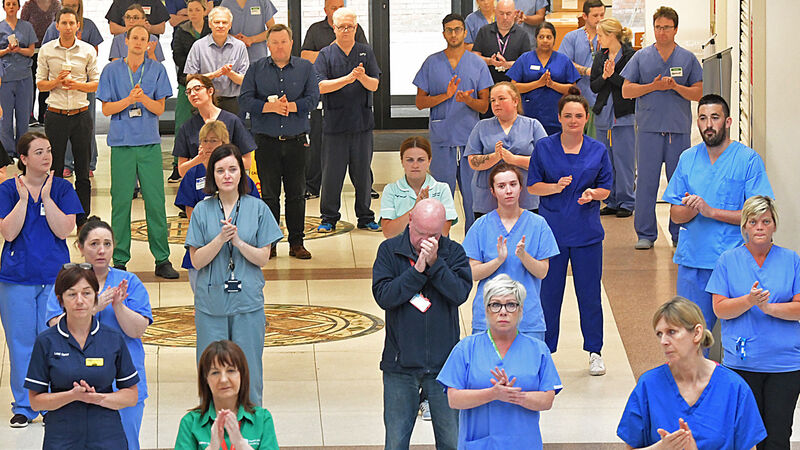Joyce Fegan: Clapping an empty gesture when burnt-out health workers are being assaulted

Rounds of applause are no substitute for safeguards, nor for better working conditions and pay, for frontline workers, who were dailyexposed to death during the pandemic and who continue to be regularly assaulted.
EATEN bread is soon forgotten. In Britain, they clapped for carers during the Covid-19 pandemic; they clapped for 10 weeks during the first lockdown. In Ireland, we talked ad nauseam about our ‘frontline heroes’. Some shops gave them discounts. There was endless State talk about that one-off bonus of a few bob.
This week, it was revealed that there were 263 assaults on healthcare workers in June: 160 HSE nurses were assaulted, and other workers assaulted included occupational, physical, and speech-and-language therapists and sonographers. There were two assaults against doctors and one assault on a dentist.
Already a subscriber? Sign in
You have reached your article limit.
Subscribe to access all of the Irish Examiner.
Annual €130 €80
Best value
Monthly €12€6 / month
Introductory offers for new customers. Annual billed once for first year. Renews at €130. Monthly initial discount (first 3 months) billed monthly, then €12 a month. Ts&Cs apply.
CONNECT WITH US TODAY
Be the first to know the latest news and updates












